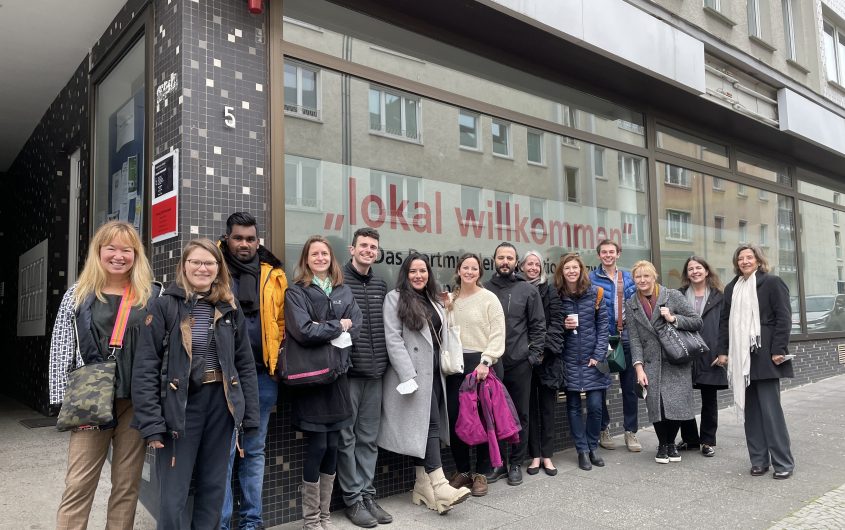
Dortmund & Buffalo
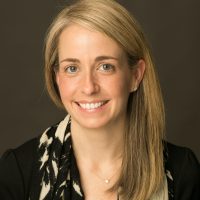
Astrid Schmidt-King
Loyola University Maryland
Astrid Schmidt-King is a Teaching Assistant Professor at the Sellinger School of Business at Loyola University Maryland, where she teaches various classes in international business (IB), sustainability management, and law and social responsibility. During her time at Loyola, she directed the IB program, served as the director of the honors program and chaired the Building a Better World Through Business initiative. Prior to academia, Ms. Schmidt-King practiced immigration law in New York and Washington, DC. In addition to her BA, JD, and LLM, Astrid completed a hybrid MA from Freie Universität Berlin, where she examined globalization’s socioeconomic impact on developed democracies. She authored a chapter, “Foreign Law and Policy,” in Law and Public Policy, participated in a Fulbright International Education Administrators Seminar (Germany) and the American Council on Germany’s immigration delegation in Berlin, was named a Presidential Fellow by the Association of International Education Administrators, completed the Emerging and Developing Global Executive fellowship by the World Trade Center Institute, and is currently part of the Global Diplomacy Lab.
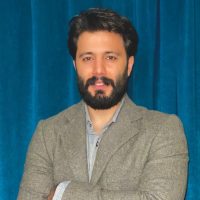
Barış Şahin
University of Cologne
Barış Şahin studied social sciences and German language and literature at the University of Cologne. He complemented his studies with cultural and religious studies at the University of Education Weingarten and Bilgi University in Istanbul and is currently finishing his Master's degree in the Teachers Education Program at the University of Cologne. In his research and activist work, he focuses on the various transnational and transcultural discourses of identity, racism, and ideologies of inequality in German society. As a scholarship holder of the Rosa Luxemburg Foundation, alumnus of the German-American Fulbright Commission (The Ohio State University, Seminar on "Diversity and Inclusion in the Classroom"), and the DialoguePerspectives, a Leo Baeck Foundation program, he was able to contribute and expand his academic and political proficiency on an international level, with the aim of making a significant contribution to European understanding and cooperation, to strengthening and defending civil society, and to shaping a plural, democratic, antiracist and solidary Europe. The experiences Mr. Şahin has gained in the course of his engagement and work have made him an expert of a new, society-oriented intercultural-worldview dialogue. He is active as a speaker, interlocutor, and advisor to civil society organizations and NGOs engaged in shaping a plural society. As head of various state and federal projects funded by the German Federal Ministry for Family Affairs, Senior Citizens, Women and Youth and the Ministry for Children, Family, Refugees and Integration of North Rhine-Westphalia, he has helped shape new social discourses, such as on the topic of identity formation among adolescents with a migration background in Germany.
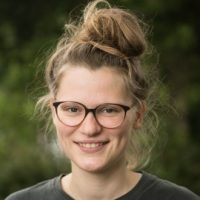
Clara S. Thompson
University of Jena
Clara S. Thompson is a German-American author, climate activist, and community organizer. She co-founded the Wald Statt Asphalt (Forests instead of Asphalt) Alliance and was a spokesperson in a recent campaign to save the Dannenröder Forest from being cut down for a new highway project. She regularly writes for the progressive German Newspaper Neues Deutschland. A graduate in cultural studies from the University of Leipzig, she is currently enrolled in a post-graduate program in sociology at the University of Jena. Her current focus is on empowering people to organize within their communities and to work towards a mobility transition away from automobile dependence towards improved public transport.
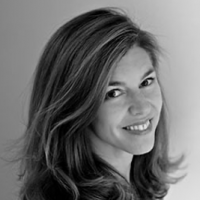
Deanna Troust
3 Stories Communications
Deanna Troust is an award-winning communications strategist and founder of Truth in Common, a nonprofit that forwards human-centered, pluralistic solutions to the mis-, dis- and malinformation epidemic. She leads workshops for community members and organizations, speaks to professional and parent groups and brings communicators to the table in tackling this foundational global issue. Truth in Common is informed by Deanna’s work in the disinformation research, journalism, democracy and diversity, equity and inclusion spaces, plus best practices for bridging divisions and her 25+-year career in social change. Based in Washington, DC and with roots in western New York, Deanna is a two-time entrepreneur who also helps nonprofits tell their impact stories and develop equity-centered communications strategies as part of her consulting arm, 3 Stories Communications. She serves on the board of DC International School, leads the Inclusion & Racial Justice Task Force at her church and lives in Washington, DC’s eclectic Adams Morgan neighborhood with her husband, two bicultural daughters and a rescue dog named Sweet Pea.
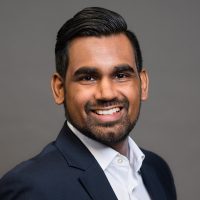
Jérôme Sathanantham
Johann Wolfgang Goethe-Universität Frankfurt am Main
Jérôme T. Sathanantham is pursuing his Master’s degree in international relations: peace and conflict research in Frankfurt and Darmstadt, Germany. He was born in Germany as a son of Tamil refugees from Sri Lanka. He completed his Bachelor’s degree at Johann Wolfgang Goethe-Universität Frankfurt am Main in sociology and political science. For his MA thesis, he conducts research about the EU migration and border regime and questions of exclusion, identity, and security. Since his entry to university, he has been committed to the non-profit organization ArbeiterKind.de as a volunteer. The ArbeiterKind.de initiative encourages schoolchildren of non-academic family backgrounds to take up university studies and supports students on their way to complete their studies successfully. Their mission is to promote equal opportunities in the German education system.
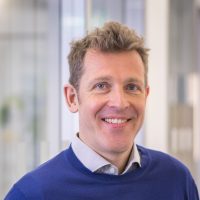
Jörg Plöger
Institute for Regional and Urban Development (ILS)
Jörg Plöger is a Senior Researcher at the Institute for Regional and Urban Development (ILS) in Dortmund, Germany. He holds a doctoral degree in human geography from the University of Kiel for his work on urban transformation processes in Latin American cities. Before joining ILS in 2009, he was a researcher at the London School of Economics (LSE), where he worked on the “Weak Market Cities” project on urban recovery approaches in post-industrial cities in Europe and the United States (see “Phoenix Cities – the fall and rise of great industrial cities” co-authored with Anne Power and Astrid Winkler, 2010). In recent years, Dr. Plöger has continued his work on cities undergoing economic restructuring. He has led several research projects in the field of migration and urban development. His recent articles in academic journals cover high-skilled migration and economic development, transnational migration and belonging as well as gentrification. He was a Visiting Research Fellow at the University of St. Louis (UMSL) in 2016 and the University of Manchester (UoM) in 2015.
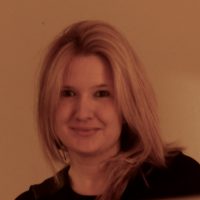
Julia Sattler
TU Dortmund
Julia Sattler studied English and American studies as well as protestant theology in her native Germany and at Hamilton College, New York. She is currently interim professor of American Studies at TU Dortmund University, where she teaches classes on a variety of subjects relating to nineteenth, twentieth, and twenty-first century American literature and culture, often with a transatlantic focus. Her ongoing research investigates the narration of urban transformation processes in the German and American Rust Belts from an interdisciplinary angle. Following this trajectory, Julia Sattler is currently studying the negotiation of radical urban transformation processes in U.S.-American poetry.
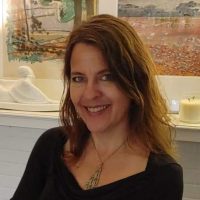
Lynn Engle
Buffalo Dortmund Student Ambassador Program; SUNY at Buffalo
Lynn Engle has honed her skills as a mediator, humanitarian, and ambassador. She graduated from Heidelberg College in Tiffin, Ohio and the Universität Heidelberg in Heidelberg, Germany. A two-time Fulbright award winner, Ms. Engle has held the position of Adjunct Professor of German at SUNY Buffalo State College, SUNY at Buffalo, and Canisius College.
Ms. Engle is the Program Director of the Buffalo Dortmund Sister City Student Ambassador Exchange Programs and is currently developing additional programming to include adults and disadvantaged youth. Ms. Engle and her husband Greg have four daughters, who embrace travel and the arts like their parents. She is an expert cook and artist and loves a challenge.
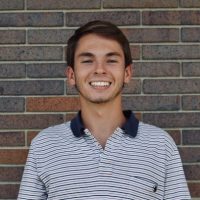
Matthew Baun
University of Dayton
Matthew Baun is a senior at the University of Dayton, where he majors in political science with a focus on international relations and comparative politics. He is originally from Valdosta, Georgia. He has studied abroad in the Czech Republic and was an exchange student at Radboud University, the Netherlands, in spring 2020. His community engagement includes volunteer work for the Second Harvest of South Georgia food bank, Habitat for Humanity, the Valdosta-Lowndes YMCA Challenger program for children with physical and mental disabilities, and Shoes for the Shoeless in Dayton, Ohio. He has also worked on the campaigns of several political candidates, including Stacey Abrams for Governor of Georgia in 2018 and Desiree Tims for the U.S. House of Representatives, Ohio 10th District, in 2020. After graduation, he plans to pursue a Master’s degree in international affairs, hopefully at a university in Europe.
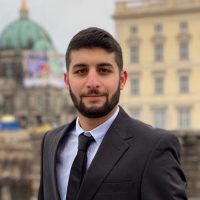
Mohammad Khanjar
Scholz & Friends
Mohammad Khanjar is engaged in PR consulting and political communication at Scholz & Friends, Germany’s leading advertising agency. With his project team, he advises EU institutions in PR affairs and coordinates their communication measures regarding political, economic and societal campaigns. Mr. Khanjar obtained a Master’s degree in international relations and security from the University of Westminster and holds a Bachelor’s degree in history, politics and society from the University of Potsdam. He gained interdisciplinary experiences in diplomatic and parliamentary affairs, PR work, and civil society initiatives. His participation in the Fulbright Diversity Initiative program in Texas and an exchange semester in California reflect Mr. Khanjar’s interest in transatlantic relations. IFAIR, a non-profit think tank, has also published his articles thematizing U.S. domestic and foreign policy. As the son of Lebanese immigrants, Mr. Khanjar is involved in Islamic youth work, volunteers as value ambassador for 'InteGREATer e.V.' and participated in a nationwide interreligious dialogue to defend pluralism. For his academic achievements and social commitment, Mr. Khanjar was awarded a scholarship by the Friedrich-Ebert-Foundation and other institutions.
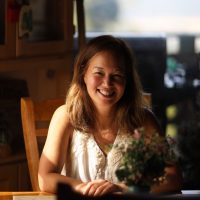
Philippa Hughes
CuriosityConnects.us
Philippa P.B. Hughes is a social sculptor and creative strategist who produces creative projects that transform society through humanizing and compassionate conversations between people who might not normally meet. She has designed and produced hundreds of unconventional, delightful, and fun activations aimed at building social capital, social cohesion, and social discourse. Her practice prioritizes relationships and encompasses a multi-disciplinary approach that is informed by sociology, psychology, philosophy, political science, community organizing, design thinking, art, and humanities. She leads CuriosityConnects.us, a partner in Looking For America, a national series inviting politically diverse guests to break bread and talk to each other face-to-face.
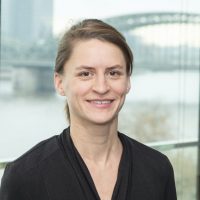
Ruth Maria Schüler
German Economic Institute (IW)
Ruth Maria Schüler works as an economist for social security at the German Economic Institute. Previously, she worked as a junior economist at the ifo Institute. Dr. Schüler holds a PhD in economics from the University of Munich. Her main research interests span education economics and political economy. Her latest research examines sentiments and worries of people in Germany with a particular focus on the Ruhr area. Using quantitative methods, Dr. Schüler tries to detect the state of mind of people in the Ruhr area and the role of the media in shaping beliefs. Dr. Schüler’s work furthermore comprises policy consultancy for the European Commission and government authorities as well as foundations and associations in Germany. As an economist at the German Economic Institute, she participates in the public and political debate.
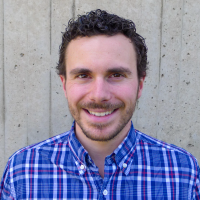
Stephen Capobianco
Institute for Genocide and Mass Atrocity Prevention
Stephen Capobianco, PhD, is the assistant director of the Institute for Genocide and Mass Atrocity Prevention (I-GMAP) at Binghamton University, where he works to establish, support, and expand international and domestic partnerships for strengthening the Institute's research, curricula, and experiential learning. With a Doctor of Philosophy in Community and Public Affairs degree, Dr. Capobianco focuses his research projects on public policy and atrocity prevention with interests in multi-level structural analyses of identity-based discrimination and conflict, social policy, and community-driven solutions to complex transnational issues manifesting on the local level. In addition to his work at I-GMAP, Dr. Capobianco serves as an elected senator to the Professional Staff Senate and as an elected delegate of the United University Professions. He also teaches in the Latin American and Caribbean Area Studies Program and is on the roster for the Fulbright Specialist Program.
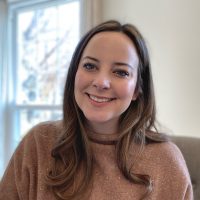
Vanessa Simpson
Lidl U.S.
Vanessa Simpson works as a on a team of linguists at Lidl U.S. headquarters doing translation work and stakeholder coordination for the grocery store. She has previous experience as Community Outreach Director in the Providence District Office for the Fairfax County Board of Supervisors in Fairfax, Virginia. Having spent a year as an exchange student in the CBYX program and living in the Ruhrgebiet, she is dedicated to the exchange of ideas around identity, culture, and community.
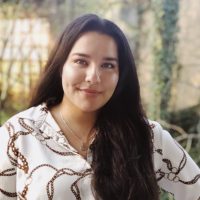
Yasmin Al-Douri
Technical University Munich
Yasmin is a Politics and Technology Graduate Student at the Technical University Munich focusing on regulation of emerging technologies and AI ethics. She also works as a Business Program Manager at Microsoft, where she engages in ‘Responsible AI’.
Yasmin is the co-founder of the initiative Responsible Technology Hub (RTH) and has further founded the non-profit organization Diverse Young Leaders e.V., which works toward making the youth leadership arena in Germany more accessible and inclusive to BPoC and other minority groups. Yasmin worked with the German Federal Foreign Office, the GIZ, the Welthungerhilfe as well as TechQuartier, and was named Young Global Changemaker 2022 by the Global Solutions Initiative. She was nominated for several awards for her engagement and received the ‘2021 Volunteer of the Year’ award.
Reflections on Social Divisions & Questions of Identity in Germany and the United States
In March and June 2022, the second cohort of the AGI Social Divisions and Questions of Identity program convened in Dortmund, Germany, and Buffalo, New York, to explore communities, cultures, and group dynamics in these rust-belt sister cities. This StoryMap, written by the participants in the project, shares the group’s observations, insights, and thoughts for the future.
The StoryMap explores the history of Buffalo and Dortmund, examining how their geography and economy contribute to divisions and challenges today. It explains how culture reflects the industrial past of these two rust belt cities, how their citizens and leaders are trying to move the economy forward, and what role immigrants and refugees play in communities. The group reflects on the political and media landscapes in these two regions and how they affect divisions. They also reflect on how football on both sides of the Atlantic can be engines for cohesion.
The group offers recommendations for building social cohesion that can be applied not only in Buffalo and Dortmund, but in cities across the United States and Germany. They fall into two categories: Environment and Development and Society and Culture.
The project Social Divisions and Questions of Identity in Germany and the United States (2021-2022) is supported by the Transatlantic Program of the Federal Republic of Germany, funded by the European Recovery Program (ERP) of the Federal Ministry for Economic Affairs and Climate Action (BMWK).








